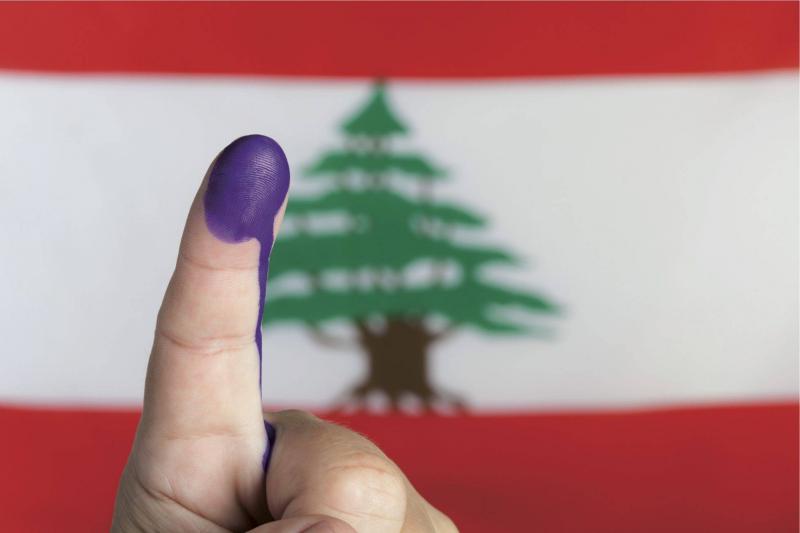As the Lebanese delve into studying and analyzing the results of the Saudi-Iranian agreement, which was sponsored by China, each party interprets its implications according to its own wishes. There are still many issues growing in intensity and failing to find resolution, among which is the upcoming municipal and optional elections, and the time factor has become increasingly embarrassing for various political forces.
Some are speaking about logistical conditions and even certain legal texts that could hinder this electoral process, despite the assurances from caretaker Prime Minister Najib Mikati and Minister of Interior and Municipalities Bassam Mawlawi that they will do everything necessary to ensure the elections are held. This has been confirmed by former MP Ali Darwish, who is part of Mikati's team, stating to "Voice of the Nation" that Mikati and Mawlawi "are working to hold these elections on schedule, especially as the local authority situation in several towns and cities is unnatural and irregular and needs new blood, regardless of the lack of resources, which municipalities like Tripoli suffer from. Therefore, holding the elections would address the decay of authority in several villages and towns and solve the issues of disruption that some municipalities are facing."
In contrast, some information indicates that contrary to what most political forces declare about their insistence on holding the municipal and optional elections on time in May, Mikati has informed several MPs from a large parliamentary bloc that all political forces, including major parties and factions, have urged him to postpone the elections on the grounds that "the political and financial circumstances of the country and the lack of adequate administrative and logistical readiness do not allow for them to take place." Some sources speak of the "complicated" situation in the country and state that current focus is in other areas, with everyone preferring not to open a new door that could further disrupt the internal situation.
While waiting for positions to crystallize further, it is essential to highlight that the logistical obstacle to conducting this electoral process lies in securing financial allocations, especially since the budget for 2022 lacks any amount for elections, and there is no budget for the current year 2023. Consequently, the government is forced to approach the parliament to pass a law to secure financial allocations, a matter hindered by the opposition from various political blocs and parliamentary forces against legislating before electing a president for the republic.
Some see that the best solution for the government in this case would be to seek external funding from international organizations and institutions, thus sufficing with convening meetings and issuing decrees to accept foreign donations to cover the election expenses estimated by the Ministry of Interior at approximately $9 million. This, of course, assumes that the judges appointed from the Ministry of Justice for the electoral committees are willing to participate, with the required number already designated, according to what a representative of the Ministry of Justice informed the Parliamentary Committee of Interior and Defense in their last meeting, stating that substitutes will be appointed for those refusing to participate as soon as the Ministry is notified.
As for the teachers and employees who will oversee the electoral process, their positions cannot be predicted as long as dates have not been set, nor has a clear picture emerged regarding the amounts allocated to them and the judges as allowances, making it premature to ascertain whether this factor will facilitate or hinder the electoral process.
According to Article 14 of the Municipalities Law, "The municipal electoral bodies are called by a decision from the Minister of Interior and Municipalities during the two months preceding the end of the tenure of the municipal councils, and the decision must specify the period between the date of its publication and the meeting of the electoral body being at least 30 days." This means that the deadlines are becoming tight for the Minister of Interior to issue decrees calling the electoral bodies, and it should not exceed early April.
Additionally, there is a legal obstacle that could complicate matters further, represented by the fact that municipal elections depend on the same principles for electing members of the parliamentary council, meaning they should be held according to proportionality as per Articles 11 and 16 of the Municipalities Law issued in 1977, which is impossible to implement now. However, the Chairman of the Interior and Defense Parliamentary Committee, MP jihad Al-Samad, informed "Voice of the Nation" that this issue has been addressed, and municipalities were exempted from this text in the parliamentary elections law that took place in 2018, stating that there is no problem in this matter and the elections will be held based on the majority law, not proportionality, which was reviewed by the committee in its penultimate session, according to Al-Samad.
Ultimately, unless the crisis of presidential vacancy is resolved and a president is elected, and if the Parliament remains unable to legislate before reaching May 31, the municipal councils will become expired and dissolved, reverting to caretaker status under the authority of the sub-governor. The Minister of Interior would then need to issue a decision to maintain these councils, limiting their functions to narrow caretaker matters until the elections are held.




